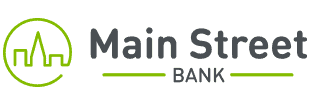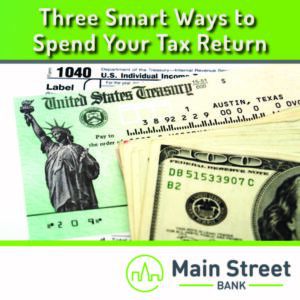For many Americans, tax season can bring in extra cash in the form of a tax return. This payment is usually from money that has been left over after paying your taxes. Before you start using that money, we’ve compiled some ideas that can add value and improve your financial wellbeing in the long run. Here are three ways you can put your tax return to good use.
1. Reduce Your Debt
Paying down any debt you have collected will reduce the interest you owe. You can reduce your debt by putting your tax return towards overdue payments on your credit cards or loans. Even if you don’t have any overdue payments, you can put your return towards the principal balance of one of your loans. Not only will this make the life of your loan shorter, but it will also decrease the total interest that you owe on your loan. As your principal balance goes down, the interest you owe goes down, too.
Extra payments can save you a significant amount of money over the life of your loan. Paying down debt is a responsible thing to do and should be the first option you consider for your tax return.
If you have multiple sources of debt, it can be hard to figure out which one to tackle first. You can pursue the debt-reduction tactic that you prefer or check out our debt reduction article for our suggested approaches.
2. Save It
Saving is perhaps the most straightforward and responsible thing to do with your tax return. You can put that money right into your savings account for when you need it most. This is a great opportunity to save for a specific goal, like a college fund for your kids, your retirement, or an emergency fund. Keeping money in your savings gives you financial flexibility when you need it and generates interest over time.
To increase your savings even more, you can open a CD account and take advantage of our special interest rates. CD accounts let you grow your savings safely, and you can guarantee a return on your investment from a financial institution that you can trust.
3. Improve Your Home or Vehicle
Investing in your home can increase its value and reduce your expenses. Anyone who owns a home knows that there are always things to be fixed or improved around the house. Your tax return could go towards purchasing a new roof, updating old appliances, or fixing up broken masonry or infrastructure. If the costs of running your home are high, then investing in energy-efficient appliances or solar panels can help lower your monthly bills. If you plan on making home energy upgrades, then you might quality for a Mass Save® HEAT Loan for interest-free financing.
You don’t have to wait for your tax return to fix up your house. By using your house as collateral, you can access funds through a Home Equity Line of Credit (HELOC) to pay for home repairs and upgrades that would otherwise be outside your reach.
Learn More About Home Equity Lines of Credit
Putting your tax return into your car is another great use for your money. It can be tempting to put off important car repairs until you have the money to tackle them, especially if they aren’t urgent. Your tax return could be just what you need to fix that broken door lock or finally replace your brake rotors. Whatever you decide to fix on your car will surely take a weight off your back, and you’ll appreciate it every time you go for a drive.
And Most Importantly. . .
Regardless of how you choose to spend your tax return, one of the most important things to do with your return is set some of it aside for yourself. A compromise between absolute spending and absolute saving will give you a better chance to save more of that money. We often act as though things needs to be “all or nothing”, but that attitude can make it very difficult to save. Few people are immune to the need for some feel-good spending, and it takes tremendous willpower to deny that pleasure. Make it easier on yourself and set aside a small portion of your return for you, even if it’s just enough to buy yourself a cup of coffee or an item that you have been wanting. That way you can both enjoy your return and put most of it aside for the future.
Follow Main Street Bank on social media for more savings tips:


